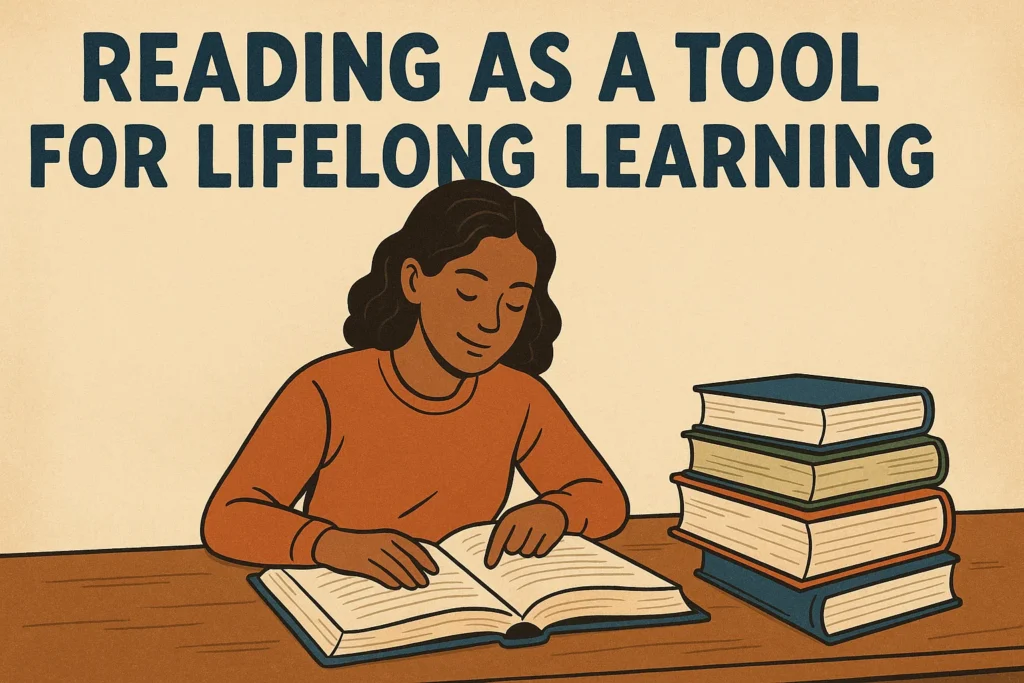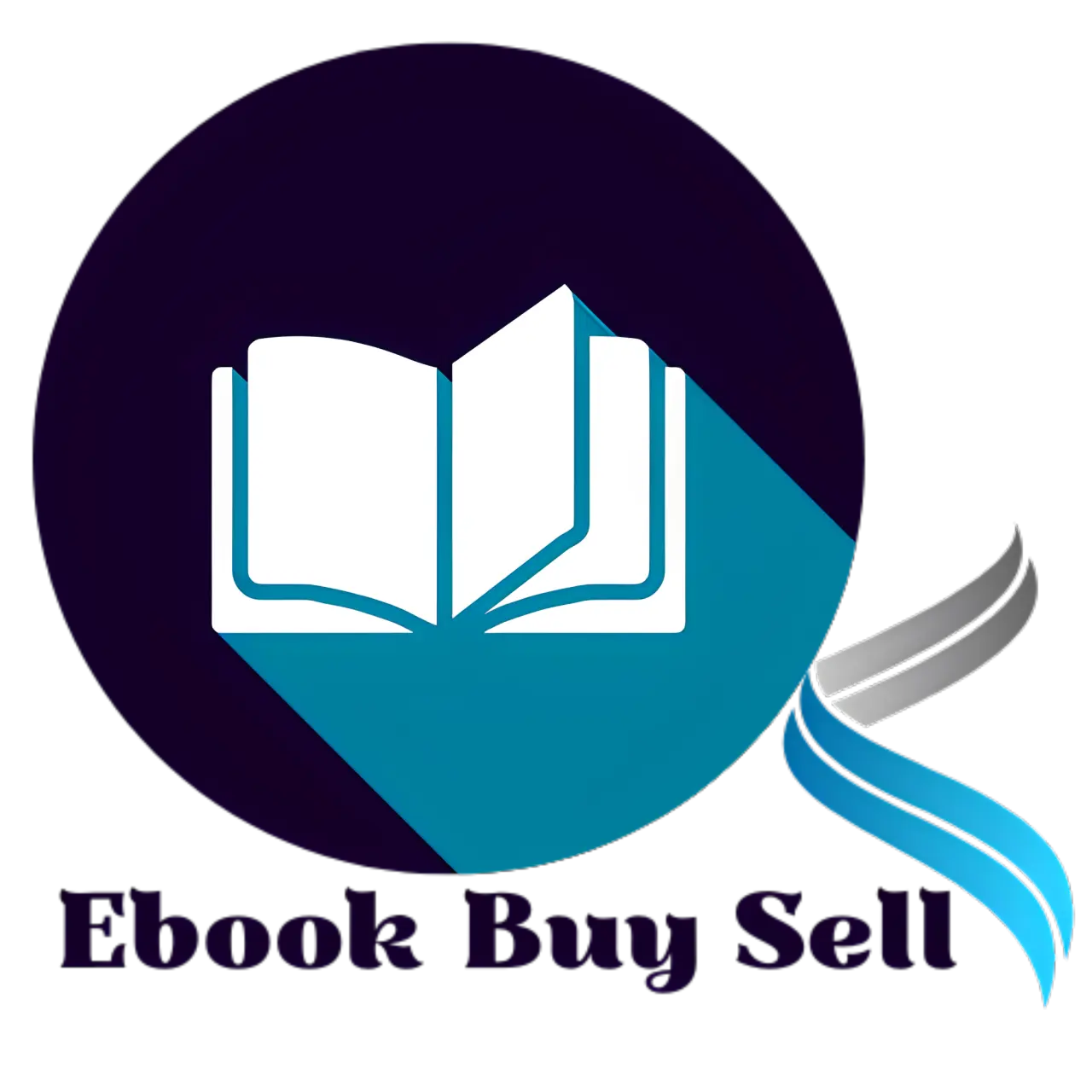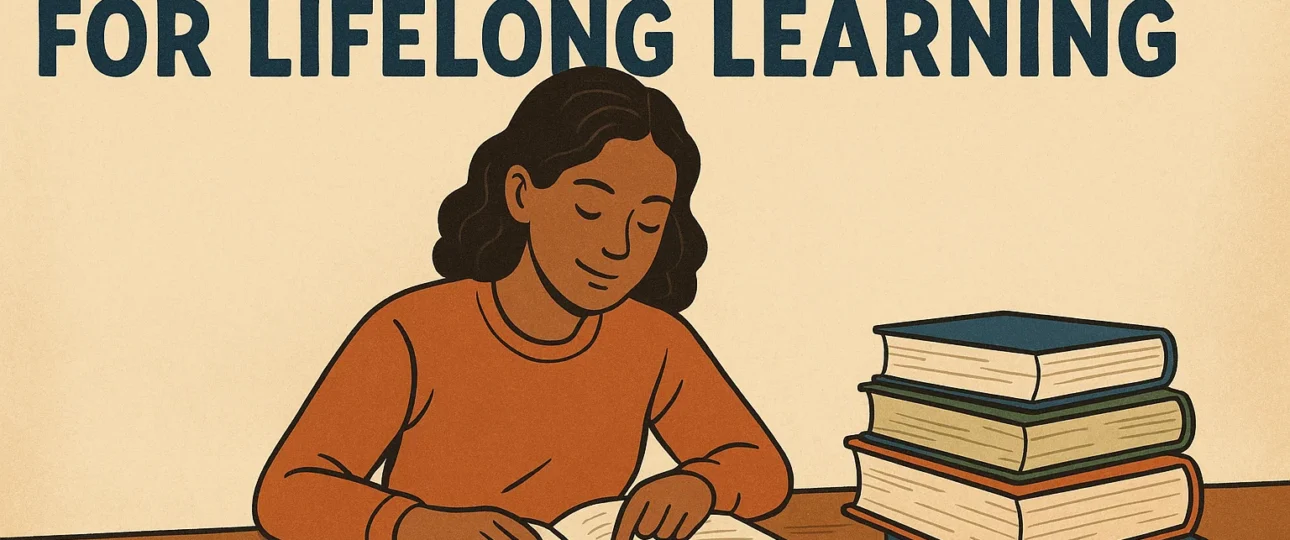In a rapidly changing world fueled by innovation and information, lifelong learning has become more essential than ever. Whether you’re a student, a professional, or a retiree, the quest for knowledge never truly ends. Among the many tools available to aid continuous personal and professional growth, reading stands out as one of the most accessible and powerful. Reading as a tool for lifelong learning is not just a habit—it’s a transformative practice that can enrich every stage of life.
What is Lifelong Learning?
Lifelong learning refers to the voluntary and continuous pursuit of knowledge for personal or professional development. It extends beyond formal education and encourages individuals to expand their skills and understanding through various methods, including online courses, practical experiences, and most importantly, reading.
From mastering a new language to understanding global economics or staying updated with the latest technological trends, lifelong learning empowers individuals to stay relevant, adaptable, and intellectually engaged. And the foundation of this journey often begins with a book.
Why Reading is the Cornerstone of Lifelong Learning
1. Accessibility and Affordability
Reading materials are widely accessible. With the advent of eBooks, digital libraries, audiobooks, and online articles, knowledge is just a click away. Even traditional books are available in public libraries or at affordable prices. This makes reading as a tool for lifelong learning both economical and inclusive.
2. Customized Learning Pace
Unlike structured courses or group classes, reading allows individuals to learn at their own pace. You can pause, reflect, revisit, or skip content based on your personal learning needs. This flexibility supports deeper comprehension and long-term retention of knowledge.
3. Cognitive and Emotional Benefits
Reading stimulates brain activity, improves memory, and enhances concentration. It also helps develop empathy and emotional intelligence, especially through fiction and biographies. The emotional and intellectual engagement fostered by reading supports a more holistic learning experience.
4. Exposure to Diverse Perspectives
Books, articles, and journals expose readers to different cultures, ideologies, and disciplines. This broadened worldview cultivates critical thinking, open-mindedness, and better decision-making—skills essential for both personal growth and career advancement.
How to Use Reading as a Tool for Lifelong Learning
To maximize the benefits of reading as a lifelong learning strategy, it helps to have a clear plan and purpose. Here are several practical tips:
1. Set Clear Learning Goals
Determine what you want to achieve from your reading. Are you learning to improve a professional skill? Looking to enhance your emotional well-being? Or simply exploring new ideas? Clear goals help you choose relevant materials and stay focused.
2. Create a Reading Schedule
Incorporate reading into your daily or weekly routine. Even 15–30 minutes a day can lead to significant knowledge accumulation over time. Making reading a habit reinforces your commitment to continuous learning.
3. Diversify Your Reading List
Don’t limit yourself to one genre or topic. Include fiction, nonfiction, self-help, science, history, business, psychology, and more. Reading a wide variety of materials keeps your learning journey dynamic and engaging.
4. Take Notes and Reflect
Jotting down key insights, quotes, or questions while reading enhances understanding. Reflecting on what you read—perhaps through journaling or discussion—deepens comprehension and makes the knowledge applicable to real life.
5. Join Reading Groups or Online Forums
Engaging with others who share your interests can provide fresh perspectives and encourage accountability. Book clubs, online discussions, and learning communities are great ways to enhance the experience of reading as a tool for lifelong learning.

Recommended Reading Categories for Lifelong Learners
If you’re just starting your lifelong learning journey or looking for new inspiration, consider these categories:
- Self-Improvement: Books like Atomic Habits by James Clear or The Power of Now by Eckhart Tolle help cultivate better habits and mindsets.
- Business and Leadership: Titles such as Good to Great by Jim Collins or Leaders Eat Last by Simon Sinek offer valuable insights into management and strategy.
- Science and Technology: Stay updated with books like Sapiens by Yuval Noah Harari or The Innovators by Walter Isaacson.
- History and Culture: Reading history helps contextualize current events and expands cultural understanding.
- Literature and Philosophy: Classic novels and philosophical texts provide deep emotional and intellectual stimulation.
Digital Reading Tools and Platforms
Technology has revolutionized how we consume written content. Here are some tools to support reading as a tool for lifelong learning:
- Kindle and E-Readers: Convenient for reading anytime, anywhere.
- Goodreads: Helps track reading goals and discover new books.
- Blinkist or Shortform: Summarized versions of popular books for quick learning.
- Libby and OverDrive: Access to free eBooks and audiobooks through your local library.
- Audiobooks (Audible, Scribd): Perfect for learning on the go.
Challenges and How to Overcome Them
Even the most enthusiastic readers face obstacles. Here are a few common challenges and solutions:
| Challenge | Solution |
|---|---|
| Lack of time | Schedule short, regular reading sessions. Use audiobooks during commutes. |
| Information overload | Focus on curated lists and trusted sources. Take breaks when needed. |
| Losing motivation | Set achievable goals and reward progress. Join reading communities. |
| Difficulty retaining content | Highlight, take notes, or teach others what you’ve learned. |
The Role of Reading in Career and Personal Growth
In today’s knowledge economy, those who continue to learn are the ones who stay ahead. Reading boosts communication skills, analytical thinking, and subject-matter expertise—all essential for career advancement. It also supports personal development by increasing empathy, reducing stress, and enhancing life satisfaction.
Employers increasingly value employees who are proactive about learning. Demonstrating that you consistently engage with books and resources can signal adaptability and intellectual curiosity—key traits in any profession.
Final Thoughts
Reading as a tool for lifelong learning is not just a personal hobby; it is a strategic investment in your future. It keeps the mind sharp, the soul nourished, and the possibilities endless. In a world where the only constant is change, your ability to adapt, grow, and thrive hinges on your commitment to learning—and reading is the gateway to that transformation.
Start today. Pick up a book, set a goal, and begin the journey toward a more informed, capable, and inspired version of yourself.
Read More Why Reading Fiction Makes You a Better Thinker
See More Balance, Strength, Inner Peace


2 Comments
[…] Read More Reading as a Tool for Lifelong Learning […]
legal weed delivery online secure checkout